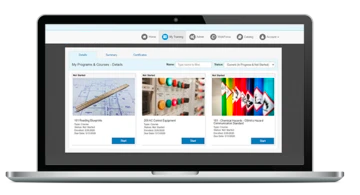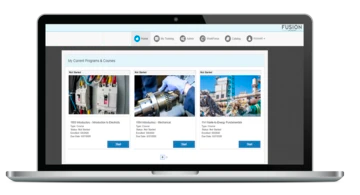So, the various things that we talked about a lot in our classes, as you can see here, you know, we talked about motors, pumps, blowers, that type of thing, control systems, PLC, VFDs, everything you can see emergency generators. And then we have individual classes for each of these. But this course, we talk about this stuff in general, and we... I most of the exercises that I have a generic, commonly common problems that you would see of these and then, of course, how to have approach it from a very systematic point of view.
So in our troubleshooting class, we talked a lot about the stages of this. And it's more about a mindset than it is anything else. So what it means to investigate the problem and how important it is to develop a concise problem statement. And of course, creating a work environment that no idea is a bad idea. Don't shoot down the guy that may think that have like an idea that might be stupid because you know what? Some of us, it could be something really dumb that why it causes it. Believe me, I've troubleshot enough stuff, where you're like, "Oh, that's what that was, oh." You're kicking yourself because, hey, it was something so simple.
And so, of course, the analysis portion of it is bringing in multiple points of view. And one of the things I like to say if you know something is you've been working on it for two, three days straight, and you still can't figure out why it's broke, ask somebody that knows nothing about it. I used to say, ask an eight-year-old because that's back when my son was eight years old and so I would just ask him, and because they...someone who doesn't know anything about it, will see something that's like...that it's just, like I said, so simple that you would normally miss because you're just so used to seeing it. So that's kind of what the idea is here, you know, entertain multiple points of view. And then again, and then, of course, implementation of this very idea.
So yes, we can talk about ideas and how to troubleshoot things. But, a lot of times a good discussion in this also includes how we can implement these various things that we come up with. Meaning that, okay, this is the problem. Let's go through the process and how to fix it. So the last class that I had, for example, I had a lot of motorheads in my class. So we would talk about...one of the examples we talked about was belt maintenance, well, depending on the type of car, depending on how you remove the belt. And so like one of the cars I had before, I had an old Cadillac once and I had to get to the belt tension on that, well, the plan was I had to remove the front end, the grill and the radiator so I can have access to the belt tensioner.
Well, that's part of the process. And so that's kind of the idea. So if you have to ask yourself, well, is this the best way to go now, one guy mentioned, Well, you know, he can take off the splash guarding, real cover so you get a side access to it. And so, and the idea behind this is to have that kind of discussion, bring in multiple levels of experience and to create a plan. Meaning that use the planning portion instead of just what I call Easter egg, where you just randomly replacing parts hoping that you'll get it fixed with no plan in mind of how it's fixing it.
And so, I kind of got ahead here with this, with the whole troubleshooting as a team's kind of I was talking about here, so hypothesize, come up with an idea. So I like to think of myself as a scientific type thinker, is that, in that no idea is a bad idea because if you come up with a quote of a bad idea all you just...alleviate it, that's not possibility, okay, it's not that then let's move on. We understand how this is. But either way, if you don't hypothesize you're going to be discarding it, ignoring it, disregarding it, forgetting it as you can see up here.





